BREAKING: Meadows’ Bid DENIED by Judge!
In a stunning turn of events, former White House chief of staff Mark Meadows faced a substantial setback as a federal judge decisively rejected his bid to move his Georgia criminal case into federal jurisdiction.
This development could be seen as a potential foreshadowing of the challenges ahead for former President Donald Trump and his associates.
>>>Who is Mark Meadows? Find HERE.
The judge’s resolute decision reverberates beyond the courtroom, sending shockwaves throughout the legal landscape, particularly in the ongoing struggle against election subversion charges in Fulton County.
It underscores the gravity of the situation and the steadfast commitment to upholding the rule of law at the state level.
As the legal battle unfolds, it’s becoming increasingly evident that the pursuit of justice knows no bounds, and the implications of this ruling are poised to shape the trajectory of these high-stakes proceedings.
Political Activities vs. Federal Role
US District Judge Steve Jones, who was appointed by Barack Obama, has made a critical ruling regarding the charges against Mark Meadows, the former White House chief of staff.
Judge Jones’s verdict illuminates a crucial distinction: the charges against Meadows are primarily tied to his political endeavors, rather than his role within the executive branch.
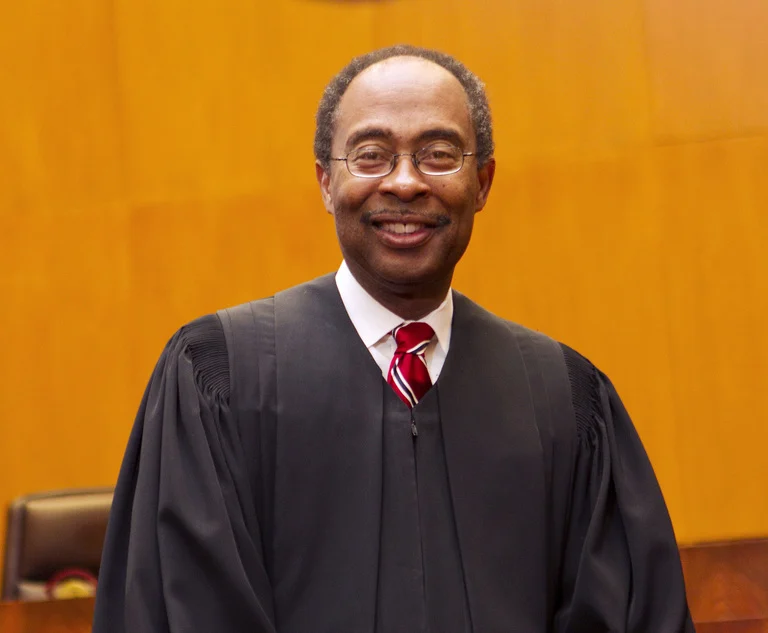
This ruling is a pivotal moment in the ongoing legal saga surrounding Meadows, as it highlights that his actions were not within the scope of his official duties during most of the alleged activities.
It emphasizes the importance of separating political activities from official government responsibilities, adding depth to the complex world of legal proceedings.
Setback for Trump and Co-Defendants
The judge’s ruling, in the legal twist, has cast a long shadow of concern over not just Mark Meadows, but also former President Donald Trump and his 18 co-defendants in the sprawling racketeering case being pursued by the Fulton County district attorney.
The decision, while specific to Meadows, holds far-reaching implications.
Meadows’ move to seek relocation to federal court is a strategic maneuver, and it’s anticipated that Trump may tread a similar path.
The underlying hope here is that by shifting the battleground to federal jurisdiction, the case might ultimately be dismissed under the protective umbrella of federal immunity provisions.
This ruling, though centered on one individual, has the potential to ripple across the entire legal landscape, raising questions about the future of this high-stakes legal battle.
Judge’s Assessment
Judge Jones has shed light on a significant issue surrounding former White House Chief of Staff Mark Meadows.
The judge’s ruling highlights Meadows’ failure to establish a substantial link between his actions and his federal responsibilities.
Central to this case is the Hatch Act, a vital piece of legislation that bars federal officials from participating in political activities while performing their official duties.
This decision underscores the importance of adhering to ethical boundaries within the realm of politics and government service, serving as a stark reminder for all federal officials to uphold their responsibilities with integrity.
Meadows’ Alleged Overt Acts
The indictment cites eight overt acts attributed to Meadows in an attempt to overturn the 2020 election results.
Meadows contended that these actions were related to his federal responsibilities, justifying a transfer to federal court.
However, Judge Jones disagreed, stating that these actions lacked a direct connection to his government role.
A Personal Blow to Meadows
In the hearing, Meadows’ courageous decision to testify about the removal request has left many of us engrossed, but it also comes with significant personal risks.
By sharing his perspective, Meadows exposes himself to potential future repercussions, as his testimony could be used against him in upcoming legal proceedings.
This bold move adds an intriguing twist to an already complex legal saga, leaving us eagerly awaiting the developments that lie ahead.
Trump’s Next Move
Trump’s legal team signaled their intention to move his case to federal court after charges were filed against him.
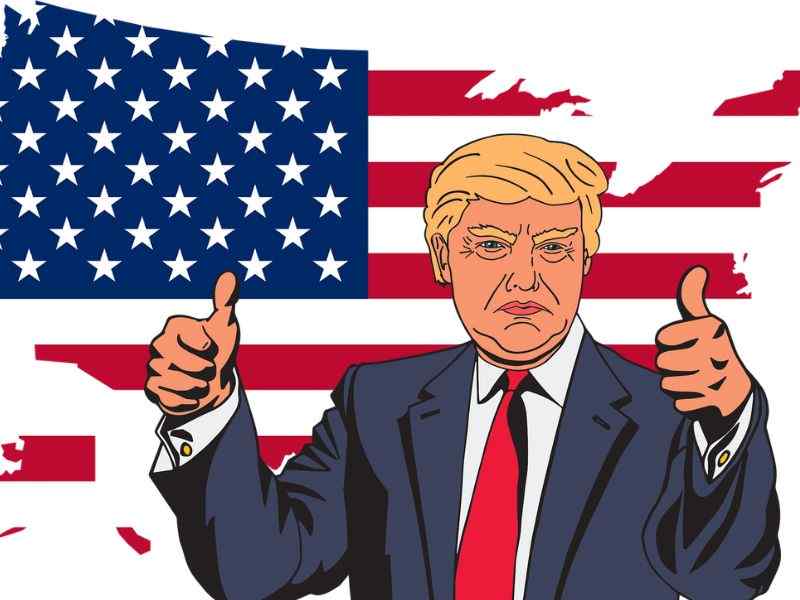
While they haven’t filed the necessary motions yet, they have 30 days from Trump’s not-guilty plea to do so.
Other Defendants’ Motions
Amidst the political turbulence of recent times, the legal arena has become a stage for intriguing developments.
Mark Meadows, the former Chief of Staff in the Trump administration, is not alone in his quest for federal court intervention.
Joining him are Jeffrey Clark, a former DOJ official under Trump, and three Georgia GOP officials. What sets them apart? Their claims revolve around their alleged roles as faux electors, all orchestrated under the directive of former President Donald Trump himself.
The convergence of these narratives in federal court promises to be a captivating legal spectacle worth keeping an eye on.
Ongoing Legal Proceedings
Despite the rejection of Meadows’ motion, other defendants’ requests to move their cases to federal court are still pending before Judge Jones.
The hearings are postponed for later part of this month.
Advantages of Federal Court
Transferring these cases to a federal court opens up a realm of strategic advantages for Meadows and the co-defendants.
One notable advantage lies in the potential immunity claims that can be invoked under the Constitution’s Supremacy Clause. This legal provision could offer them a shield against certain state-level actions.
Moreover, the move to federal court also brings with it the prospect of a more favorable jury pool.
Especially in the northern region of Georgia, which leans more Republican, Meadows and his co-accused may find a jury that’s more sympathetic to their perspective.
These tactical considerations could significantly impact the outcome of the cases, making the decision to shift venues a crucial one.
High-Stakes Testimony
During his recent hearing, Meadows testified for over three hours about his actions in the White House following the 2020 election.
He argued that his work was integral to his role as chief of staff, even when it involved political matters.
However, prosecutors questioned the limits of his authority, and the judge found some of his testimony lacking.
Raffensperger’s Testimony
Georgia Secretary of State Brad Raffensperger was also subpoenaed to testify at Meadows’ hearing.
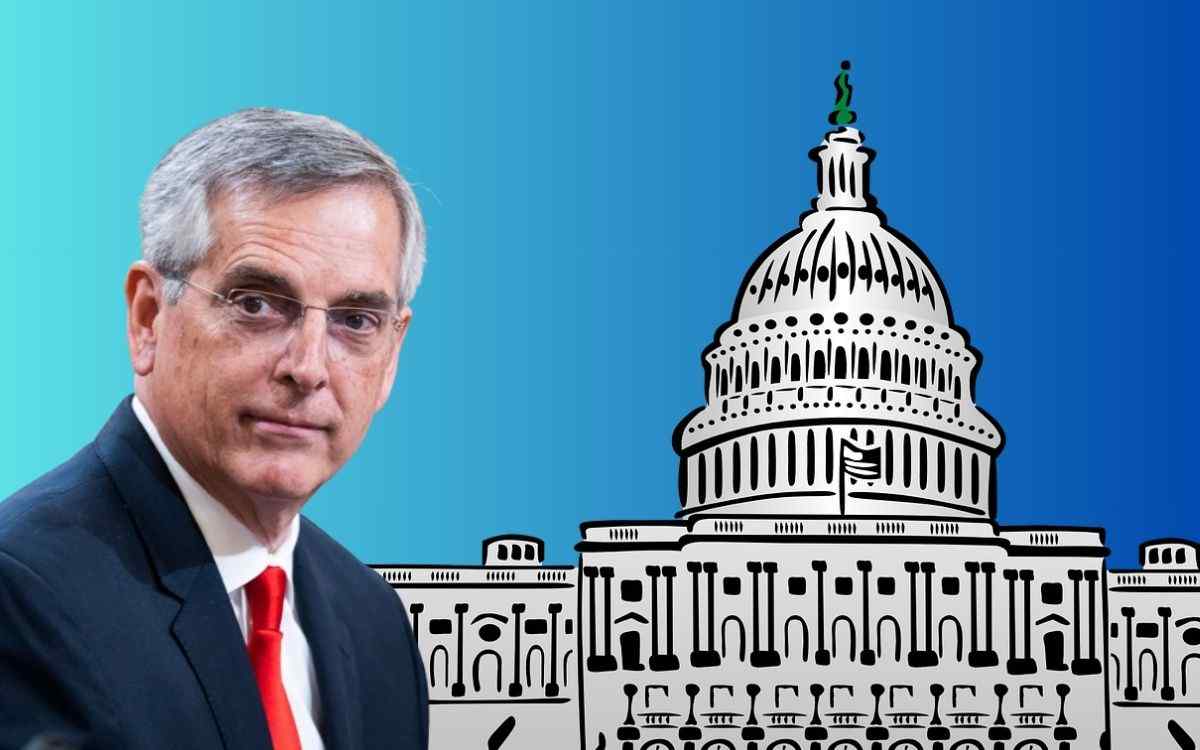
He made it clear that there was no federal government involvement in certifying Georgia’s elections.
This ruling marks a critical development in the ongoing legal battles surrounding election subversion, setting a precedent that could influence future proceedings for Trump and his co-defendants.
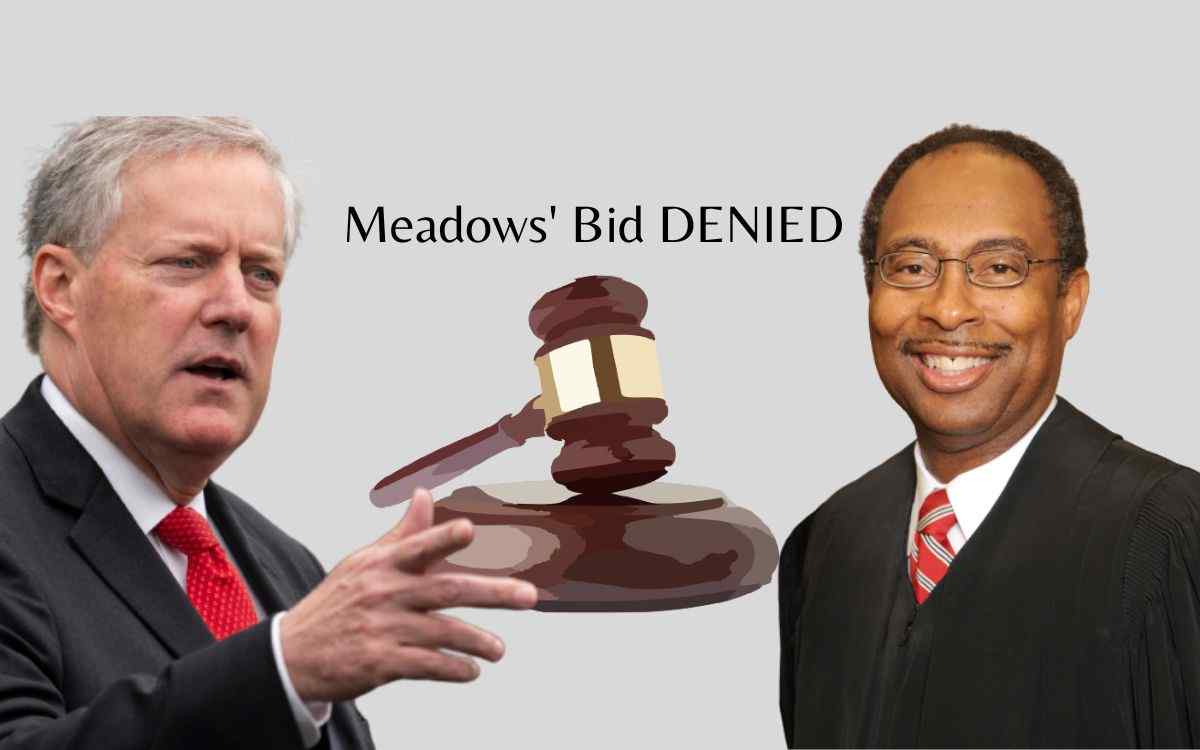
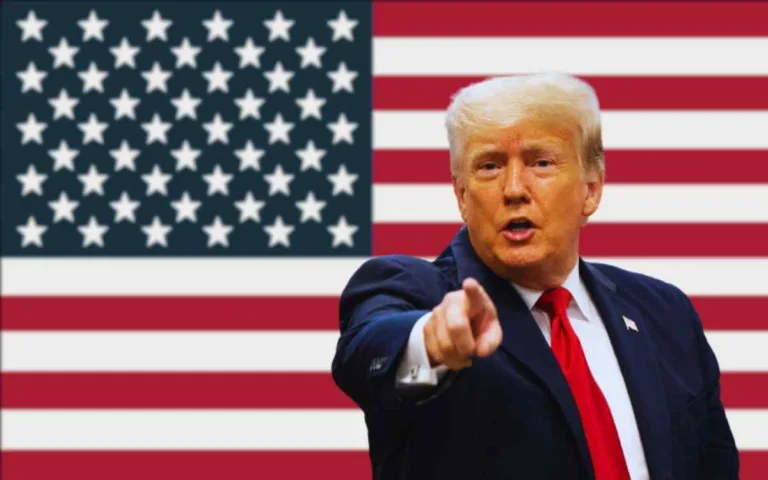



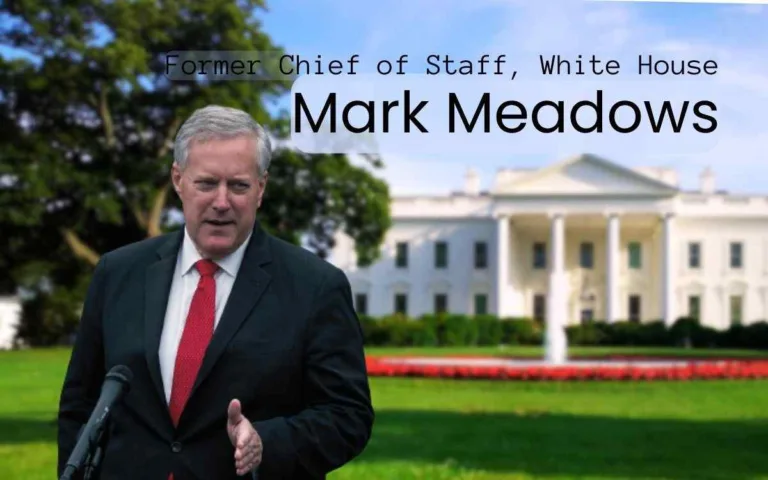

One Comment